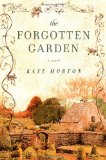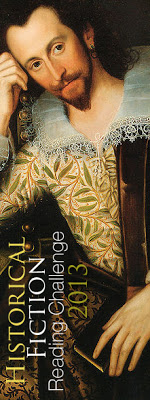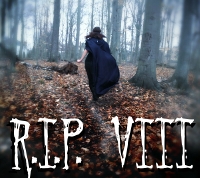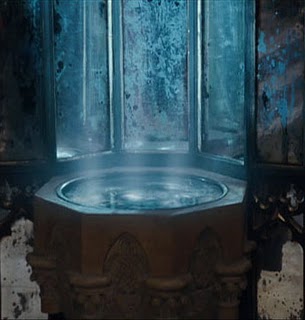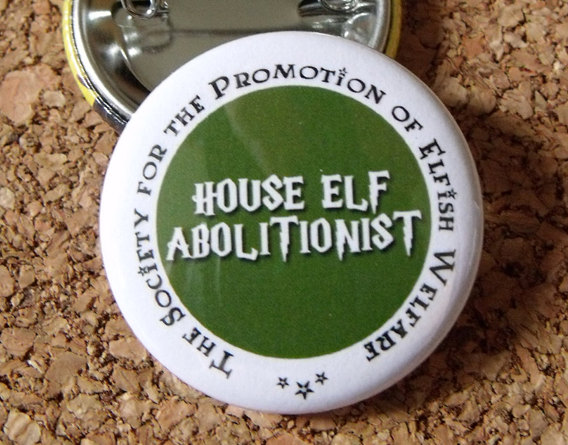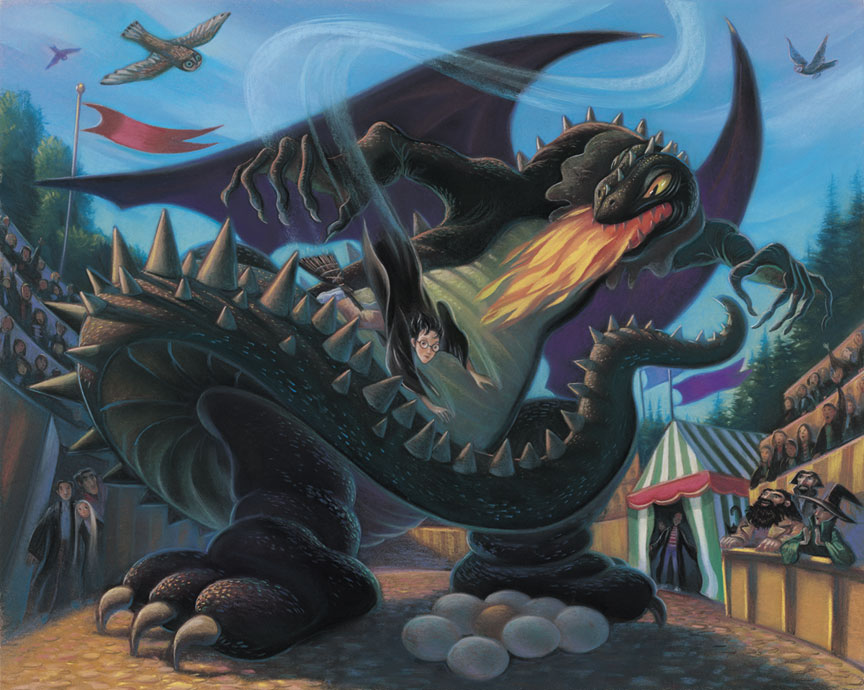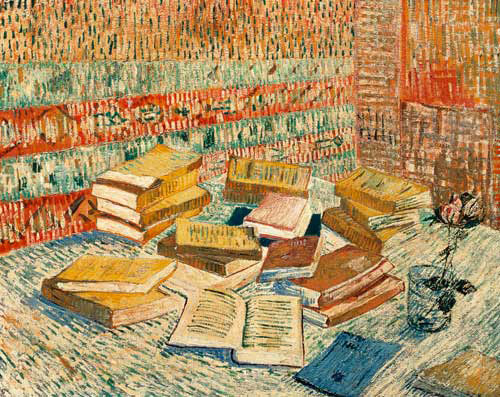 Ah, yet another year in which I failed to complete most of the reading challenges and goals I set for myself. That’s fine. There is next year! Hope springs eternal and all that. I’ll do a recap of this year shortly, but I’m blaming my failures on three things: 1) the Doctor, 2) soapmaking, and 3) work. Not precisely in that order, but you get the idea.
Ah, yet another year in which I failed to complete most of the reading challenges and goals I set for myself. That’s fine. There is next year! Hope springs eternal and all that. I’ll do a recap of this year shortly, but I’m blaming my failures on three things: 1) the Doctor, 2) soapmaking, and 3) work. Not precisely in that order, but you get the idea.
But I do have some goals in mind for next year, and I have some reading challenges in mind, too.
I have tried and failed to read 52 books the last couple of years. I think perhaps that one year I read 50 was a fluke, especially given my current schedule. I have zero commute, so I can’t read books on the way to work anymore. I didn’t realize how much extra reading time that gave me, I guess. My goal for 2014 is a more modest 30 books. I actually did come close to reading 30 books this year, so perhaps reading 30 books is a goal that is within my grasp. I am all for challenging myself, but I hate the feeling of frustration that comes with falling so short of my goals that I actually give up and don’t read. That really happened to me this year. Stupid, yes. I didn’t say it made sense.
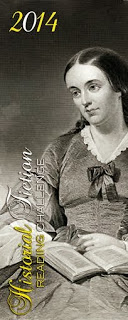 I love participating in the Historical Fiction Reading Challenge each year. Historical fiction is one of my favorite genres. I plan to shoot for the Victorian Reader level of five books. I hope I will read more, and if I do, that’s great, but seeing as one of my other goals is to try to get through some books I’ve been wanting to read for a long time and try to stay on top of new releases better, I don’t want to box myself in too much by taking on a large number in any one genre.
I love participating in the Historical Fiction Reading Challenge each year. Historical fiction is one of my favorite genres. I plan to shoot for the Victorian Reader level of five books. I hope I will read more, and if I do, that’s great, but seeing as one of my other goals is to try to get through some books I’ve been wanting to read for a long time and try to stay on top of new releases better, I don’t want to box myself in too much by taking on a large number in any one genre.
As I have the last couple of years, I also plan to create my reading map and participate in the Where Are You Reading Challenge. Google Maps is more difficult to use with their new interface. I am hoping I don’t have to fight it too much.
When they come along, I hope to participate in Carl‘s challenges the Once Upon a Time Challenge and the R.I.P. Challenge. Actually, the R.I.P. Challenge is a must for me every year, but it’s been a while since I did Once Upon a Time.
 I always like to do something a little different, so this year, I’ll be trying out the Foodies Challenge. I’m not sure what I’ll read yet, but I’ll participate at Short Order Cook level (1-3 books). It might be just what I need to finally read [amazon text=For All the Tea in China&asin=0143118749], [amazon_link id=”0500286965″ target=”_blank” ]The True History of Chocolate[/amazon_link], [amazon_link id=”0393343618″ target=”_blank” ]Extra Virginity: The Sublime and Scandalous World of Olive Oil[/amazon_link], [amazon_link id=”0061288519″ target=”_blank” ]97 Orchard: An Edible History of Five Immigrant Families in One New York Tenement[/amazon_link], or [amazon_link id=”0385340869″ target=”_blank” ]The Cookbook Collector[/amazon_link]. Or maybe I could finish [amazon_link id=”0142001619″ target=”_blank” ]Salt: A World History[/amazon_link]! Anyone participating in this challenge looking for a good novel might try [amazon_link id=”B0043RSJQS” target=”_blank” ]The Kitchen Daughter[/amazon_link], which is an excellent foodie read.
I always like to do something a little different, so this year, I’ll be trying out the Foodies Challenge. I’m not sure what I’ll read yet, but I’ll participate at Short Order Cook level (1-3 books). It might be just what I need to finally read [amazon text=For All the Tea in China&asin=0143118749], [amazon_link id=”0500286965″ target=”_blank” ]The True History of Chocolate[/amazon_link], [amazon_link id=”0393343618″ target=”_blank” ]Extra Virginity: The Sublime and Scandalous World of Olive Oil[/amazon_link], [amazon_link id=”0061288519″ target=”_blank” ]97 Orchard: An Edible History of Five Immigrant Families in One New York Tenement[/amazon_link], or [amazon_link id=”0385340869″ target=”_blank” ]The Cookbook Collector[/amazon_link]. Or maybe I could finish [amazon_link id=”0142001619″ target=”_blank” ]Salt: A World History[/amazon_link]! Anyone participating in this challenge looking for a good novel might try [amazon_link id=”B0043RSJQS” target=”_blank” ]The Kitchen Daughter[/amazon_link], which is an excellent foodie read.
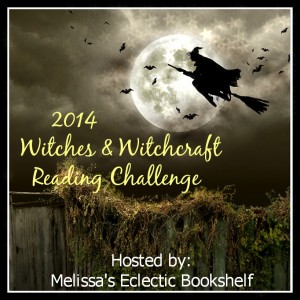 One final challenge: the 2014 Witches & Witchcraft Reading Challenge. I love reading about witches, and I have few books I’ve been meaning to read forever that would be perfect. Perhaps it will even prompt me to pick up [amazon_link id=”0143123629″ target=”_blank” ]Shadow of Night[/amazon_link] (All Souls Trilogy, Bk 2). I’ll go for Initiate level (1-5 Witchy books). We have a goal of visiting Salem again now that we’re so close. For the record, Salem is one the most awesome places to visit. You should try to get there if you can.
One final challenge: the 2014 Witches & Witchcraft Reading Challenge. I love reading about witches, and I have few books I’ve been meaning to read forever that would be perfect. Perhaps it will even prompt me to pick up [amazon_link id=”0143123629″ target=”_blank” ]Shadow of Night[/amazon_link] (All Souls Trilogy, Bk 2). I’ll go for Initiate level (1-5 Witchy books). We have a goal of visiting Salem again now that we’re so close. For the record, Salem is one the most awesome places to visit. You should try to get there if you can.
Update, 12/29: Thanks to Iliana, I have discovered the Postal Reading Challenge. I love the idea of focusing on epistolary novels. As I told Iliana, I used to collect stamps as a child, and I already have one book in mind for the challenge A History of Britain in Thirty-six Postage Stamps. I’ll go for the Postcard Level of four books. I hope I can figure out three other books to read.
Also thanks to Iliana, by a circuitous route, I found out about the 2014 Book Bingo Reading Challenge. I couldn’t resist that one. Using your reads to play Bingo? I mean, how much fun is that? Sold!
So that’s it. I think these are much more reasonable goals. Of course, it must be said one should shoot for the stars and all that, but I’m hoping by setting obtainable goals, I’ll feel less discouraged about my reading this year.
Image Vincent Van Gogh



